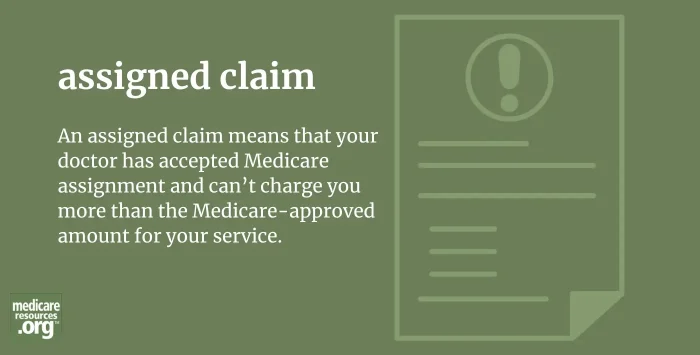
You're on your way!
You're being directed to a third-party site to get a quote.
Since 2011, we've helped more than 5 million visitors understand Medicare coverage.
By shopping with third-party insurance agencies, you may be contacted by a licensed insurance agent from an independent agency that is not connected with or endorsed by the federal Medicare program.
These agents/agencies may not offer every plan available in your area. Please contact Medicare.gov or 1-800-Medicare to get information on all options available.

An approved provider submits an assigned claim to Medicare for payment after a beneficiary has received a service. When an assigned claim is filed, the provider has accepted assignment with Medicare, meaning they’ve agreed to accept Medicare’s approved rate as payment in full.1 Learn what it means if your doctor does not accept assignment.
The patient can be charged the applicable deductible and coinsurance, but cannot be balance billed for any amount over the Medicare-approved amount.2 Instead, the provider is required to write off any charges above the Medicare-approved amount.
If the medical provider does not accept assignment, the patient will generally have to pay the bill upfront. In most states, the bill can be up to 15% more than the Medicare-approved amount. The patient will then file a claim with Medicare to seek reimbursement for the Medicare-approved amount (less any deductible or coinsurance the patient owes).1 Some Medigap plans will pay the additional 15% charge, although most do not.3
Very few doctors opt out of Medicare.4 But if a patient with Medicare sees a doctor who has opted out of Medicare, a claim cannot be submitted to Medicare by either the patient or the provider. The provider can bill any amount they wish, and the patient is fully responsible for paying it.4
Footnotes